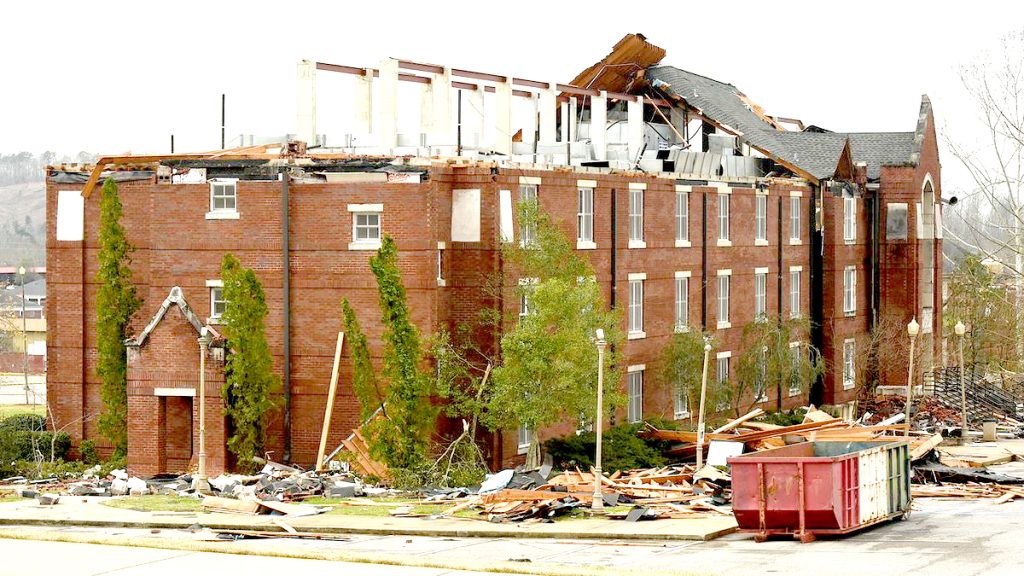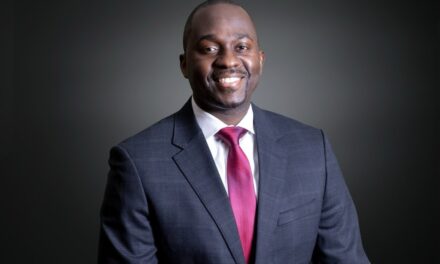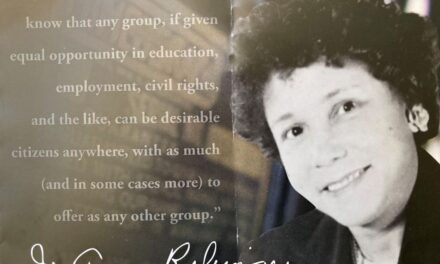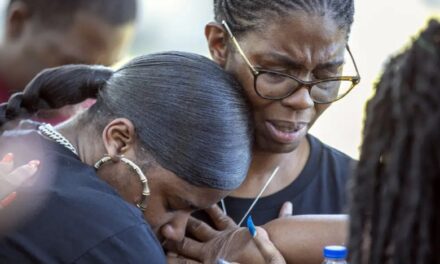By Hannah Denham
Five years after a tornado wrecked Jacksonville State University’s campus, disputes over the cost of cleanup continue in federal and state courts.
Initially, JSU and ServPro of Birmingham appeared to work in harmony on the campus cleanup. That was until two separate audits found that ServPro overbilled millions. Initial results of one audit show that ServPro billed for 30 hours per day per employee in some instances.
Then, the university switched sides, following behind the state insurance fund in refusing to pay ServPro for more billed work. ServPro alleges in multiple lawsuits that Jacksonville State officials misused state and federal funds for tornado recovery instead of paying ServPro for its full scope of work.
A federal judge, ServPro and Jacksonville State University have all said in court records that the FBI is investigating the issue.
Since then, ServPro has maintained the accuracy of its billing, saying that the university still owes more than $24 million in unpaid work and interest. The state, which provided insurance reimbursements for most of JSU’s campus cleanup, refused to pay more than the nearly $50 million it did to reimburse JSU for its payments to ServPro, saying that the university’s contractor was overbilling for its work.
ServPro, a subsidiary company of Pelham-based BWW, Inc., sued the university in federal court and filed a claim with a state finance department board. A federal judge threw out the lawsuit and said it was a state matter.
Now it’s all in the hands of Calhoun County Judge Timothy Burgess. ServPro has asked the judge to keep its business documents confidential during the discovery process. Burgess scheduled a hearing for Aug. 24 in his courtroom in downtown Anniston.
“We have serious concerns about ServPro’s billing to JSU based on a third party audit that was conducted,” Gregory Harley, the university’s in-house lawyer, told AL.com in an email. “The audit raises substantial questions about ServPro’s billing, including billing rates for workers, duplicate billing, excessive hours billed in a single day, overtime billing, excessive markups and other issues. We look forward to the discovery process in the litigation.”
Birmingham attorney Wayne Morse, whom the university retained for the lawsuits, declined to comment. Representatives for ServPro – including CEO Brady Wilson and attorneys Brad Smith and Barry Hair of Birmingham and Stanley Murphy of Tuscaloosa – either declined to comment or did not respond.
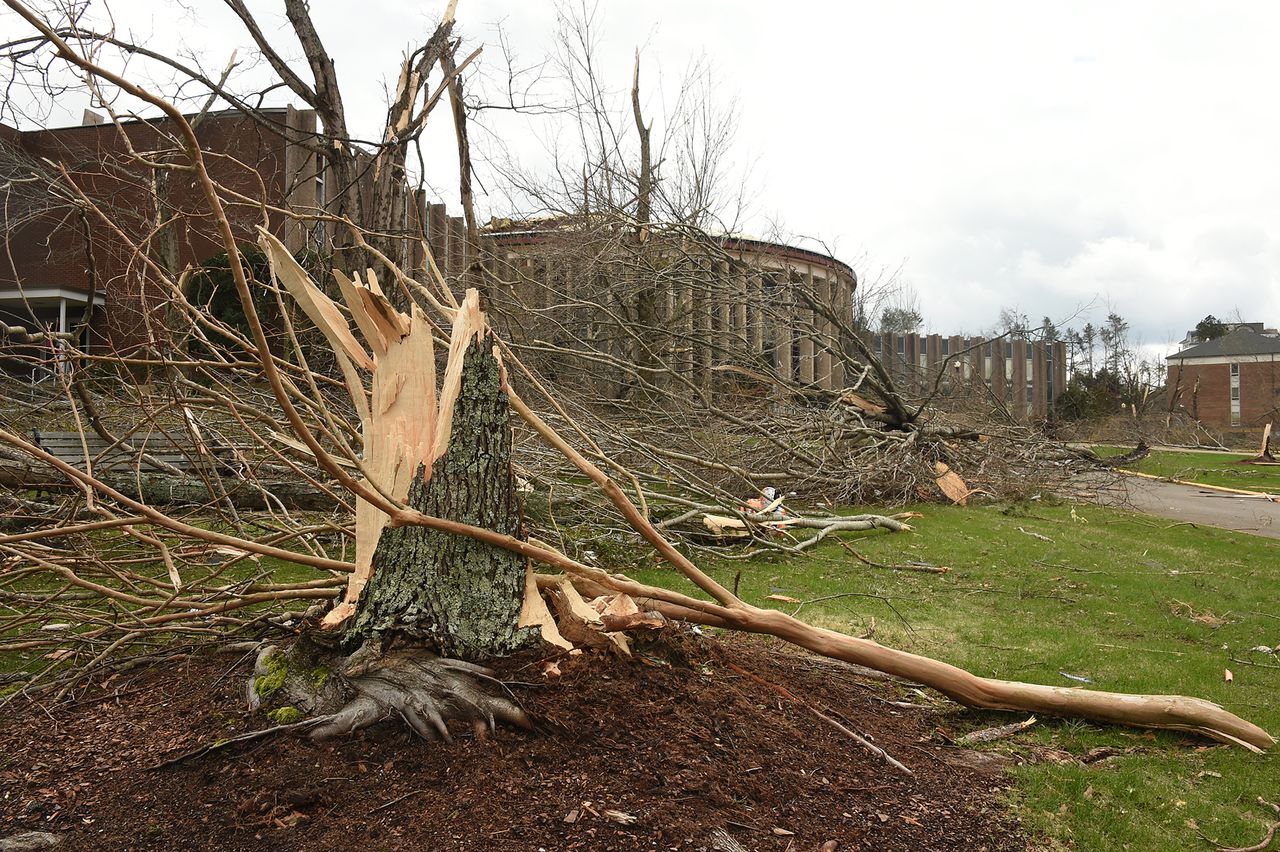
Jacksonville State University hired ServPro to rebuild its campus buildings on March 20, 2018, just one day after the tornado struck its campus. Its contract didn’t include a scope of work. ServPro began billing the university per their contract, and Jacksonville State paid those invoices on time, up to about $50 million, court records state.
The exact total cost of the tornado’s damage to Jacksonville State University isn’t yet calculated, said Arlitha Harmon, senior vice president of finance and administration and chief financial officer. But current tallies find spending well over $100 million, per the university’s annual financial reports.
“The University continues to work to obtain final determinations and finish the outstanding tornado related repairs,” Harmon told AL.com in an email. “Settlements and reimbursements are pending.”
The Alabama Department of Finance’s State Insurance Fund has reimbursed the university nearly $90 million to cover the cost of debris removal, campus safety and some lighting repairs, per the university’s 2022 annual financial report. But some expenses weren’t reimbursed. So the university used $30 million of its own money, Harmon said, and turned to other funds, mostly from the Federal Emergency Management Agency, as well as emergency grants and nearly $13 million loaned from the state of Alabama.
In January 2019, JSU’s state insurer told the university it had launched an audit and was withholding a $12 million reimbursement, saying that there was an issue with ServPro’s invoices, per court records. Then, three months later, Jacksonville State stopped paying ServPro, according to court records.
That independent audit by Ohio-based accounting firm Meaden & Moore found ServPro overbilled the university for its overtime rates even though the contract doesn’t allow for overtime, may have duplicated more than 10,000 hours of work, billed laborers for higher rates than allowed in the contract and incorrectly billed subcontractors. JSU later referenced the results of that audit in its responses to ServPro in court documents as justification for not paying the company more money.
The initial audit, which was not included in court records but obtained by AL.com, noted that ServPro in some cases billed for as many as 30 hours in a single day for individual employees.
In the audit, which is labeled as initial and incomplete, Meaden & Moore also found that ServPro continued to bill the university for its work even after finishing its construction in December 2018, its time sheets were altered or submitted incorrectly, equipment costs were upcharged, and entire invoices were duplicated and labeled incorrectly. By April 2019, the auditor said it still wasn’t finished with its audit because of the volume of records that ServPro provided, but that it could only recommend that the university pay about $30.6 million – half of what ServPro billed.
Spokespeople for Meaden & Moore did not respond to requests for comment or provide a full and complete version of the audit to AL.com.
By September 2019, Jacksonville State indicated it was aware of the state-requested audit but unaware of its results showing potential overbilling by ServPro and defended the company. In a letter to a representative for the Alabama Division of Risk Management’s State Insurance Fund, university counsel asked why the state hadn’t reimbursed the university for tornado recovery payments for six months and disputed allegations from representatives of the state insurance fund that the university wanted it to pay for campus enhancements and didn’t cooperate fully.
“With the approval of SIF’s representatives and consultants, JSU hired ServPro who did an excellent job assisting JSU in getting the campus ready to open,” the university counsel’s letter reads. “SIF did not have any problems with ServPro’s work or rates at the time the work was done and did not have any problem with the invoices at the time they were received.”
In another audit of the university conducted by the Alabama Department of Examiners of Public Accounts and published Nov. 2019, the state identified three red flags related to public works projects between Oct. 1, 2016, and Sept. 30, 2018. One of them was about an unnamed contractor that did tornado recovery work for the university.
Government/public organizations, like Jacksonville State, have to advertise for sealed bids for three weeks before they sign a contract for a project worth more than $15,000 to allow for a competitive process, per Alabama code. There are some exceptions in cases of emergency, as was this tornado, but the Department of Examiners of Public Accounts still found in its audit that the university broke the law by allowing work to go on for well after the disaster hit.
The state audit found that ServPro billed the university for more than $4.4 million in mitigation services and nearly $8.2 million in construction services across campus on May 11, 2018, listing the work as 98% complete. But as of January 2019, the company was still charging the university – and billing steep prices, saying the university owed it for more than $52 million in construction work, per the audit.
The state’s audit also found that ServPro was billing the university for overtime construction work daily instead of weekly, per the contract. That resulted in a bigger bill for the university.
“Internal control procedures should require clauses in cost plus contracts allowing the University access to the contracted company records to ensure that it pays only those costs that are properly compensable under the terms of the contract,” the state’s audit reads. “The University’s contract did not include an audit provision.”
By December 2020, the university had changed its tune. The university counsel told ServPro in a letter that Jacksonville State would not pay ServPro any more money until an investigation by the FBI and the U.S. Attorney’s Office, which had been ongoing for “several months,” concluded and the state resumed its reimbursements.
“ServPro’s apparent fraud and overbilling have created massive problems for JSU,” the university counsel said in its letter to ServPro. “This has resulted in tremendous financial hardship for JSU, delayed the completion of work and disrupted JSU’s normal operations.”
In April 2021, ServPro first sued three Jacksonville State officials over its lack of payment – then president Don Killingsworth; James Brigham, former senior vice president for finance and administration and chief financial officer; and David Thompson, director of capital planning and facilities – as well as other unnamed, unknown officials.
The company filed its complaint in the U.S. District Court for the Northern District of Alabama, Eastern Division. It alleged that the university officials “misrepresented to ServPro the status of payments to which it was due” and insisted ServPro continue its work all the while knowing that the university would direct those funds elsewhere or just keep them instead, according to the complaint.
ServPro asked the court for the $20.5 million it alleged the university still owed, plus interest, damages and other fees. In February 2022, U.S. District Judge Corey Maze ruled in favor of the university officials’ motion to dismiss the case, stating that ServPro’s federal claim wasn’t viable.
One month later, ServPro tried again – filing a new complaint alleging the same issues and naming additional university officials in Calhoun County Circuit Court.
In the case, ServPro alleged that Brigham and Thompson committed one count each of fraud, fraudulent misrepresentation, suppression and deceit; conversion; tortious interference with business relations and defamation; and loss of business opportunity. The company also sued other officials – Killingworth, controller Allyson Barker, chairman of the university’s board of trustees Randall Jones and senior vice president for finance and administration Arlitha Williams-Harmon – for injunctive and mandamus relief, which would compel them to follow a potential court order.
The company is asking Judge Burgess to award the money it alleges it’s still owed based on its contract with the university, as well as compensatory damages, punitive damages, and interest, costs and attorneys’ fees.
JSU officials have since filed two motions to dismiss the case, arguing that they’re immune to being sued because they’re state officials, that the court lacks jurisdiction for the topic and that ServPro’s complaint is a “ruse for breach-of-contract against the State.” The university’s defense is that because its contract with ServPro didn’t include a scope of work and wasn’t bid, it’s not enforceable. Burgess ruled against those motions twice, and the case has continued.
Separately, in December 2021, ServPro filed a claim with the Alabama State Board of Adjustment against the university, the Alabama Department of Finance, the Alabama State Insurance Fund, the Alabama Division of Risk Management, and the Alabama Emergency Management Agency.
It’s unclear if that claim has been resolved. Spokespeople for the Department of Finance, which oversees the Board of Adjustment, declined to comment and would not provide AL.com with records related to ServPro’s claim with the Board of Adjustments, citing an “active, ongoing investigation.”
Generally, if the results of a state audit deal with federal dollars, the audit’s findings are sent to the appropriate federal agency, said Rachel Riddle, chief examiner for the department which serves as Alabama’s top financial watchdog. All audits that the department conducts are sent to authorities like the attorney general, district attorneys, the FBI and the IRS, she told AL.com.
“If there is something there that these entities think warrants looking into, they usually contact us and do so,” Riddle said in an email.
But it’s unclear what came of the Department of Examiners of Public Accounts’ findings of fault with both ServPro and Jacksonville State – a spokesperson for the department declined to say.
Whether the FBI and the U.S. Attorney’s Office investigated ServPro, Jacksonville State University, or both parties remains unconfirmed.
Spokespeople for the Federal Bureau of Investigations’ Birmingham field office and U.S. Attorney Prim Escalona were not available for comment in time for publication. Spokespeople for the offices of Alabama Attorney General Steve Marshall and Calhoun County District Attorney Brian McVeigh did not respond to requests for comment.
The university’s campus recovery is still ongoing. One building – Wallace Hall, the former home for its nursing program – has seen delays because of financial constraints. It appears the university has exhausted federal funds to rebuild the tornado-damaged buildings on campus after ServPro stopped its work. Per the university’s annual financial report for 2022, the university asked FEMA to pay $28.3 million to rebuild Wallace Hall, but the agency denied that request at least twice. Last month, the university opted to demolish the building and move the School of Nursing elsewhere.

